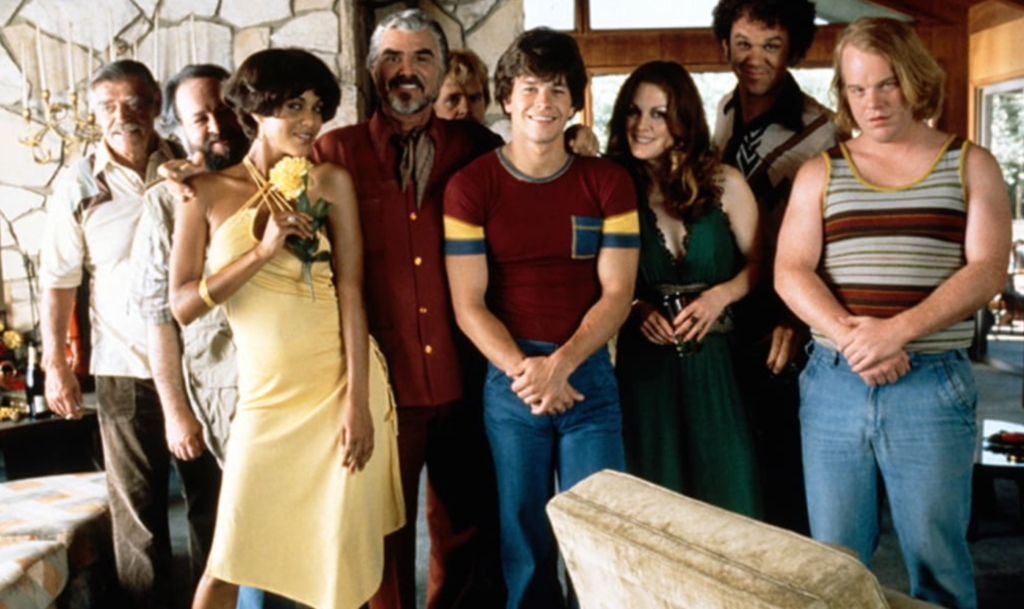
This is Anderson’s Scorsese movie. Sure, there’s a bunch of Altman here too. But it feels like Scorsese with those sweeping long takes and great musical synchronization. I’ve seen this movie a few times in my life. For some reason, it never quite stuck. I liked it okay. But I never really understood the adulation it often received. Well this time…it stuck.
There’s a sense of unease with this movie. Like something in the fridge that’s maybe about to go bad. It still looks pretty good on the surface, but there’s this funky whiff of rot just under the nose. It might be spoiled underneath. When you meet all these characters, they seem like nice, relatively caring people that just so happen to be employed in a morally questionable industry. But the more you get to know them, the more you start to see the dirt and grime. Wahlberg’s naive Eddie Adams is like our proxy. He’s awed by these people at first. After all, they like him for who he is, unlike his mother, who shows no love or compassion to him. It’s almost as if she’s aware of, and despises, his most defining feature: his ginormous penis. Which is what his new friends seem to value most.
Speaking of the characters, there are just so many personalities at play in Boogie Nights. It can sometimes feel overwhelming. But not a bad overwhelming. A good one. Like watching a fireworks finale, and the colorful explosions are too much for your eyes and ears to handle, and maybe your eyes tear up a little, but not because you’re emotional or anything, but because you just can’t close your eyes and they’re so strained but you definitely can’t turn away.
Even with all the great characters, it’s Dirk Diggler’s story at heart. Wahlberg gives a high-pitched, almost daffy performance. But it’s undeniably a compelling one too. He sort of flits above the surface of this movie, like he’s some delicate creature, if not for…well, you know. For a moment in time Eddie gets to experience love. Being loved. Loving. Or at least the closest to love he’s ever had. But he quickly replaces that love with chemical love. Synthetic love, fake love, replacement love. And that’s the tragedy of his character. He just wants love. He wants a strong father and a loving, caring mother. And romance too. Someone who doesn’t just love him for what he can give them. But he’s even confused about that too. He doesn’t even truly realize it, does he? That as much as he wants to please others, he wants to receive it in return. Maybe he’s too dumb to really understand his own motivations and strengths and weaknesses. And so he just defaults to the one obvious thing he knows he can be good at. And there’s nothing wrong with that. Or is there? I suppose that’s for fate to decide.
I sense that Anderson learned a lot in making this film. Under the weight of such a huge ensemble cast and controversial subject matter, he easily could have crumbled. But instead he became a stronger filmmaker. And not just after making this movie, but during it. You can see such a huge leap between Hard Eight and Boogie Nights. He seemed to find a perfect vein of filmmaking to tap into, for this specific time and place. And much of what he learned in Boogie Nights will also carry over into his next film, Magnolia, where he would partially re-invent himself again. But make no mistake, Boogie Nights is an incredible piece of cinema. One that helped catapult him into the upper tier of young 90’s directors.